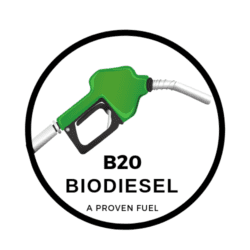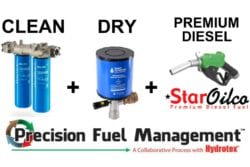Oregon-Made Biodiesel
Low CO2 Biodiesel Made from Waste Vegetable Oil in Salem, Oregon.

Star Oilco is a proud seller of locally-sourced biodiesel products.
We believe in biodiesel and run B20 in our own fleet. Star Oilco has been a pioneer in successful fleet demonstration of B20 and blends up to B99 in a host of applications for over a decade. There is no lower cost way to reduce your CO2 emissions than by substituting petroleum diesel with a recycled vegetable oil feedstock biodiesel blend. It is a drop in solution that requires awareness in your fleet maintenance concern — but beyond that is a very low barrier to use.
We have worked with our vendor for recycled oil biodiesel, SeQuential Biofuels, since 2004.
SeQuential Biofuels collects feed stocks collected from deep fryers and food processors throughout the Pacific Northwest to make the lowest CO2 biodiesel fuel in Oregon. If you are seeking to reduce your carbon footprint, biodiesel is your drop in solution. Ready and approved by every manufacturer for on- and off-road vehicles at a 20% biodiesel blend.
How can we help you move forward?
We are here to help you be successful with biodiesel, even if you are not our customer. Let us know if you have questions or if we can be of help.





